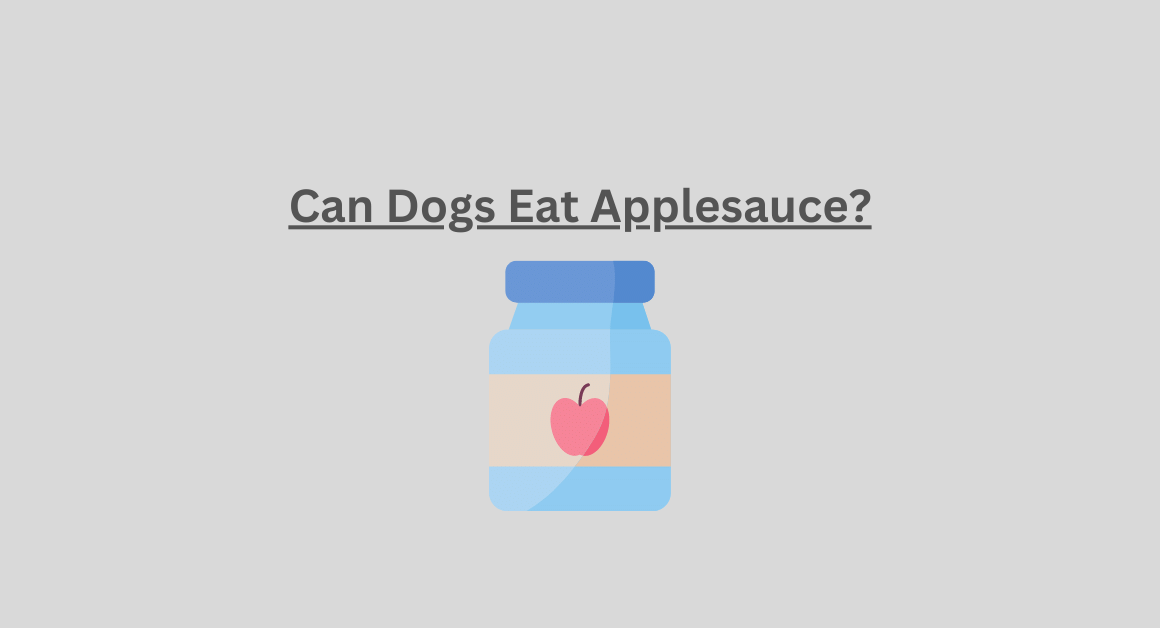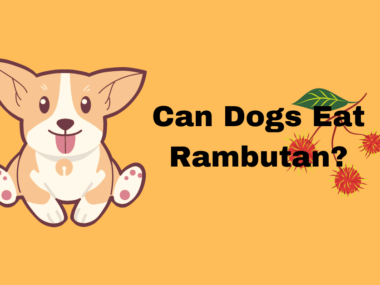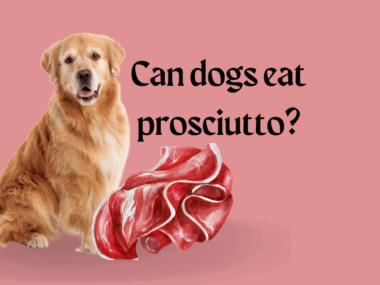If you’re a dog owner, you may have wondered about sharing some of your favorite human foods with your furry friend. One such popular food is applesauce. You might ask, “Can dogs eat applesauce?” the answer isn’t as straightforward as you might think. In this article, we’ll delve into the topic and explore whether applesauce is a safe and healthy treat for your canine companion.
Table of Contents
What is Applesauce?
Before diving into the question, let’s start by understanding what exactly applesauce is. Applesauce is a puree made from cooked or mashed apples. It often contains additional ingredients like sugar, cinnamon, or lemon juice for flavor enhancement. Applesauce is widely enjoyed by humans and is known for its sweet and tangy taste. It can be found in various forms, from homemade to store-bought.
Can Dogs Eat Applesauce?
When sharing human food with dogs, it’s essential to exercise caution. While some human foods are safe and beneficial for dogs, others can harm their health. So, can dogs safely consume applesauce? The answer is yes, in moderation.
SEE: Can Dogs Eat Squash?
Factors to Consider
Before feeding your dog applesauce, consider a few essential factors. First, consider your dog’s age, size, and overall health. Puppies, older dogs, or those with specific health issues may have different dietary requirements or sensitivities. Additionally, remember any allergies your dog might have, especially towards apples or the ingredients commonly found in applesauce.
READ NOW: Can Dogs Eat Chicken Bones?
Benefits and Risks
Applesauce does offer some potential benefits for dogs. It contains dietary fiber, vitamins, and antioxidants, which can contribute to their overall health and well-being. The fiber content in applesauce can aid digestion and promote a healthy gut. Furthermore, the vitamins and antioxidants present in applesauce can support a more robust immune system.
However, it’s essential to be aware of the potential risks or concerns associated with feeding applesauce to dogs. Commercial applesauce products may contain added sugars, which can harm dogs excessively. High sugar eat can lead to weight gain, tooth decay, or even diabetes in dogs. Additionally, some dogs may experience digestive issues or an upset stomach when consuming applesauce.
READ ALSO: Can dogs eat prosciutto?
Serving Applesauce to Dogs
If you decide to treat your dog to some applesauce, it’s crucial to do so in moderation. As a general guideline, a small amount, such as a spoonful, can be offered as an occasional treat. However, it should never replace a balanced and nutritious diet specifically formulated for dogs. Always consult your vet-doctor before introducing new food to your dog’s diet.
When serving applesauce, choose unsweetened and plain varieties without added flavors or spices. This will ensure that your dog isn’t exposed to unnecessary ingredients that may be harmful. Additionally, it’s a good idea to check the ingredient list for any potential allergens or toxic substances before feeding applesauce to your dog.
Other Fruits for Dogs
While applesauce can be a treat for your furry friend, other fruits can be safely shared with dogs. Fruits like watermelon, blueberries, and bananas can provide additional nutritional benefits. However, keep in mind that not all fruits are safe for dogs. Grapes and raisins, for example, can be toxic and should be avoided.
READ ALSO: Can cats eat peanuts?
Conclusion – Can Dogs Eat Applesauce?
In conclusion, dogs can eat applesauce in moderation, but there are a few considerations to remember. Applesauce can provide some nutritional benefits and be a tasty treat for your furry companion. However, it should always remain the same balanced and appropriate diet for dogs. Remember to consult your veterinarian before introducing any new food into your dog’s diet, including applesauce. By prioritizing your dog’s health and well-being, you can ensure your treats are safe and enjoyed responsibly.
So, the next time you enjoy a bowl of applesauce, you might share a small spoonful with your beloved four-legged friend. After all, a happy and healthy dog is a delightful sight to behold!
Note: While this article provides general information, it is not a substitute for professional vet-doc advice. Consult a qualified veterinarian if you have any concerns or questions about your dog’s diet.




